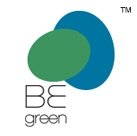Transportation Industry
The movement toward a Hydrogen Age is accelerating and Bing Energy is positioning itself to become a key component supplier to manufacturers in the transportation industry. The current main direct hydrogen fuel cell applications with high demand include light-duty vehicles, buses, and material handling (forklifts, tow tractors, pallet trucks). U.S., Germany and Japan are leading innovations and adoption of the technology in this arena, while China and South Korea are striving to be leaders in the world market.
Hydrogen fuel cells are more commonly utilized in transportation options and on track to receive favorable incentives from large multinationals and governments because of fuel cells’ high efficiency, ease of refueling and lack of toxic emissions. The United States, Germany, Japan, Scandinavia, like other parts of the world, are working to build a hydrogen infrastructure able to support this exponentially-growing demand in the next decade. According to Pike Research, more than 5,200 hydrogen fueling stations for cars, buses and forklifts will be operational by 2020, up from just 200 stations in 2010[i].
As the transportation market undergoes revolutionary changes, Bing Energy will supply fuel cell components with cutting-edge performance and durability for technical innovation and energy sustainability in the industry.
[i] “More than 5200 hydrogen fueling stations to be operational by 2020,” Pike Research, July 19, 2011 <https://www.pikeresearch.com/newsroom/more-than-5200-hydrogen-fueling-stations-to-be-operational-by-2020>;
Distributed Generation
Producing a fuel cell with lower cost and higher durability than those currently exist on the market will move us toward the affordable energy production and storage processes necessary to make full use of hydrogen energy sources. Distributed generation is a complete solution that covers the generation and distribution of clean energy at the point of use. Within this field, Uninterruptable Power Supply (UPS) and micro-Combined Heat and Power (mCHP) applications are currently experiencing tremendous annual growth.
UPS can be used as standby (backup power) or full time (primary power). High reliability, low maintenance, seamless switching, and small footprint (compared to batteries) make UPS a viable solution for telecom and data center applications.
mCHP systems reduce demand pressure on the electrical grid while increasing overall system efficiency by releasing captured thermal energy. Japan has been actively supporting the commercialization of mCHP for residential use by speeding up development and lowering costs; its four major gas companies setting total sales target of about 15,000 units for fiscal year 2012, up 30 percent from sales in FY2011[i].
Whether for 24/7 primary use, backup power, or CHP, Bing Energy can supply leading MEA’s suited for system integrators that produce generator systems for commercial, industrial, and residential markets worldwide.
[i] “Gas firms pushing fuel cells/Eco-friendly household power units efficient but costly, bulky,” Daily Yomiuri Online, April 23, 2012 <https://www.yomiuri.co.jp/dy/business/T120423004042.htm>;
Related Links
The Third Industrial Revolution — an interview with Jeremy Rifkin: https://blog.sfgate.com/tmiller/2011/10/24/the-third-industrial-revolution-%E2%80%93-an-interview-with-jeremy-rifkin/
U.S. Department of Energy Hydrogen Program: https://www.hydrogen.energy.gov/
The National Hydrogen Association: https://www.hydrogenassociation.org/index2.asp
National Renewable Energy Laboratory- Hydrogen and Fuel Cells Research: https://www.nrel.gov/hydrogen/proj_fuelcells.html
Database of State Incentives for Renewables and Efficiency: https://www.dsireusa.org/
The A to Z of Nanotechnology: https://www.azonano.com/



